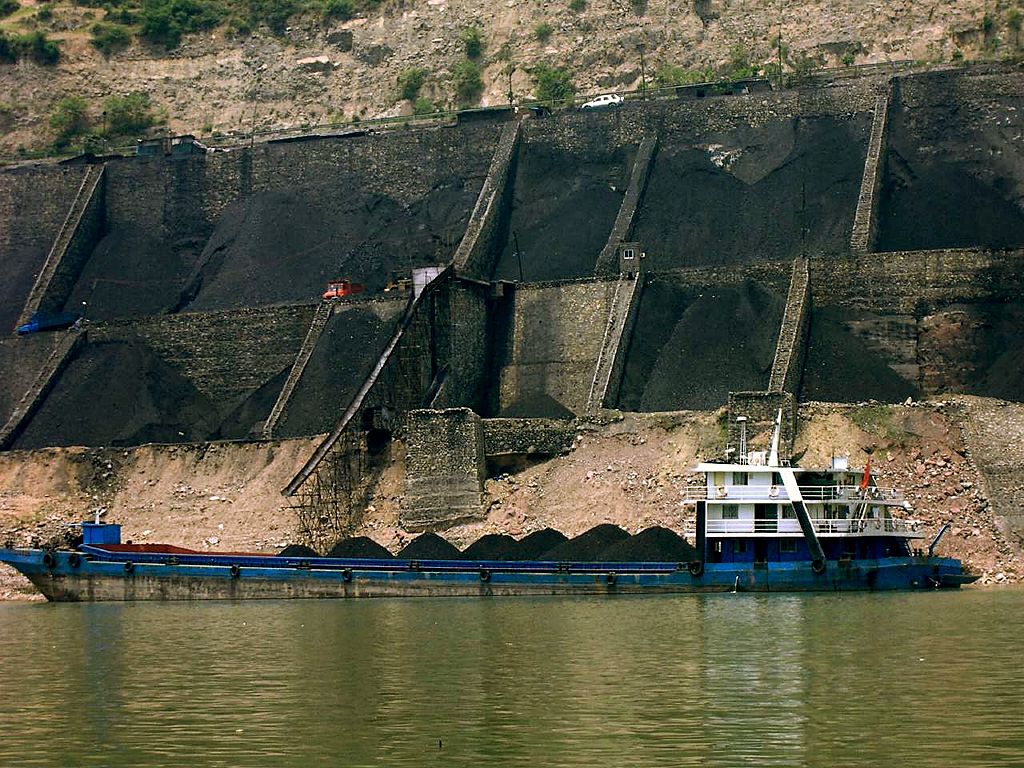Although gas remains a small and expensive component in China's fuel balance, demand for it is growing faster than expected. In April, consumption was 22% higher than in the same month in 2016, and in general in the first four months of the year, gas consumption increased by more than 12%, according to the National Development and Reform Commission.
The results encourage analysts to update demand forecasts and may signal that the government is on track to achieve its goal: the country's authorities want to increase the share of gas in total energy use to 10% by 2020. It also improves the prospects for potential hundreds of billions dollars-worth investment from Russia, Australia and the United States. The new perspective may attract companies engaged in construction of gas pipelines and export infrastructure to meet the demand of the growing Chinese market.
"China's goals look increasingly more achievable", said Laban Yu, head of Asia's oil and gas sector research at Jefferies Group LLC in Hong Kong, "It has nothing to do with China's economy or the prices of natural gas and coal. It's about whether the government is serious about doing what it promises to do".
Unlike the US, where cheap and ample gas reserves have caused the growth of its use by power plants and factories, China's domestic products are more expensive, and the country relies on imports from a far abroad, including liquefied natural gas supplied by tankers. Prices set by the government are among the highest in the world, and producers have no incentive to switch to gas, unless regulation requires it.
In 2015, coal accounted for almost two-thirds of China's energy consumption, while gas accounted for less than 6%. In the US last year, gas accounted for 29% of the energy used, coal for 15%.
The government of President Xi Jinping sees gas as one of the ways to reduce air pollution, from which cities from Beijing to Shanghai suffer. Combustion of coal is the main cause of smog, which poses a risk to the health of the largest population in the world. China is also making every effort to fulfill its commitments to reduce carbon emissions associated with climate change.
The transition to gas is ridden with problems, especially given the fact that coal remains cheap. Gas consumption received momentum when a decline in coal production in China led to a nearly double increase in coal prices almost for 12 months to 700 yuan ($ 102) per ton in November. Yet, this impulse may be weakened if coal resumes the recession that began at the end of 2011. Prices fell below 600 yuan this month and could fall below 500 yuan by the end of June, Jefferies analysts predict.
"As coal prices are expected to fall to 500 yuan per ton this year, the transition to natural gas will cease and some price-sensitive consumers in the industry may even consider switching back to coal, said Miao Tian, an analyst at North Square Blue Oak Ltd. in Pekin.
source: bloomberg.com
The results encourage analysts to update demand forecasts and may signal that the government is on track to achieve its goal: the country's authorities want to increase the share of gas in total energy use to 10% by 2020. It also improves the prospects for potential hundreds of billions dollars-worth investment from Russia, Australia and the United States. The new perspective may attract companies engaged in construction of gas pipelines and export infrastructure to meet the demand of the growing Chinese market.
"China's goals look increasingly more achievable", said Laban Yu, head of Asia's oil and gas sector research at Jefferies Group LLC in Hong Kong, "It has nothing to do with China's economy or the prices of natural gas and coal. It's about whether the government is serious about doing what it promises to do".
Unlike the US, where cheap and ample gas reserves have caused the growth of its use by power plants and factories, China's domestic products are more expensive, and the country relies on imports from a far abroad, including liquefied natural gas supplied by tankers. Prices set by the government are among the highest in the world, and producers have no incentive to switch to gas, unless regulation requires it.
In 2015, coal accounted for almost two-thirds of China's energy consumption, while gas accounted for less than 6%. In the US last year, gas accounted for 29% of the energy used, coal for 15%.
The government of President Xi Jinping sees gas as one of the ways to reduce air pollution, from which cities from Beijing to Shanghai suffer. Combustion of coal is the main cause of smog, which poses a risk to the health of the largest population in the world. China is also making every effort to fulfill its commitments to reduce carbon emissions associated with climate change.
The transition to gas is ridden with problems, especially given the fact that coal remains cheap. Gas consumption received momentum when a decline in coal production in China led to a nearly double increase in coal prices almost for 12 months to 700 yuan ($ 102) per ton in November. Yet, this impulse may be weakened if coal resumes the recession that began at the end of 2011. Prices fell below 600 yuan this month and could fall below 500 yuan by the end of June, Jefferies analysts predict.
"As coal prices are expected to fall to 500 yuan per ton this year, the transition to natural gas will cease and some price-sensitive consumers in the industry may even consider switching back to coal, said Miao Tian, an analyst at North Square Blue Oak Ltd. in Pekin.
source: bloomberg.com





